US To Put More Sanctions On Chinese Surveillance Co. Over Sales To Iran: WSJ

The Wall Street Journal has quoted some sources saying Washington is to impose new sanctions on Chinese surveillance companies over sales to Iran's security forces.

The Wall Street Journal has quoted some sources saying Washington is to impose new sanctions on Chinese surveillance companies over sales to Iran's security forces.
The report on Saturday said US officials are in advanced discussions on the sanctions and have zeroed in on Tiandy Technologies Company, an electrical equipment manufacturer based out of the Chinese city of Tianjin whose products have been sold to units of Iran's Islamic Revolutionary Guard Corps (IRGC).
“Chinese customs data shows exports of video-recording equipment to Iran jumped last year amid mass protests sparked by the September death of a young woman while in police custody for allegedly violating the Islamic Republic’s strict dress code,” reported the WSJ on Saturday.
According to the Journal, the US is also looking at whether Zhejiang Uniview Technologies Co., another large Chinese provider based in the eastern Chinese tech hub of Hangzhou, has sold surveillance tools to Iran security forces.
“If implemented, the move could put the company at risk of being cut off from the American financial system and cripple its ability to conduct business in US dollars.”
Tiandy is a private firm based in the northern city of Tianjin, which ranks among the top video surveillance companies in China and the world.
An industry survey says the annual sales revenue of Tiandy was more than $800 million in 2021 with branches in over 60 countries.
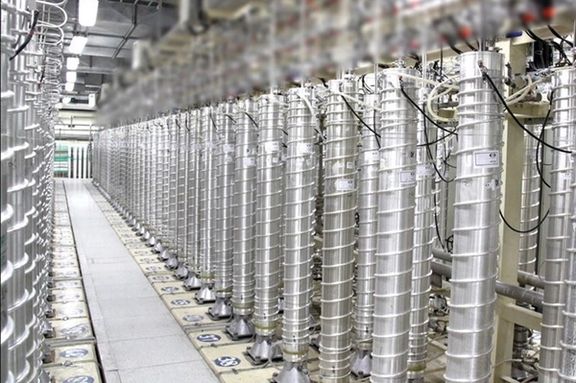
A UN watchdog report shows Iran is inconsistent in meeting its nuclear obligations, the United States, Britain, France and Germany said in a joint statement Friday.
The International Atomic Energy Agency (IAEA) criticized Iran on Wednesday for making an undeclared change to the interconnection between the two clusters of advanced machines enriching uranium to up to 60% purity, close to weapons grade, at its Fordow plant.
Iran said the IAEA's position on Tehran's nuclear work was not correct.
“Iranian claims that this action was carried out in error are inadequate. We judge Iran’s actions based on the impartial and objective reports of the IAEA, not Iran’s purported intent,” the Western powers said in their statement.
The IAEA Board of Governors comprised of more than 30 countries has already censured Iran several times for breaching its obligation. The Board took action twice in 2022, as a warning to Iran that the West can take the issue to the UN Security Council.
According to the 2015 nuclear accord with Iran known as JCPOA, signatories can trigger the automatic re-institution of international sanctions imposed by the Security Council in the early 2010s that were lifted when the deal was made. In this case, since the United States has withdrawn form the agreement, the three European countries can resort to the ‘trigger mechanism.’
The IAEA found the change during an unannounced inspection on Jan. 21 at the Fordow Fuel enrichment Plant (FFEP), a site dug into a mountain where inspectors are stepping up checks after Iran said it would dramatically expand enrichment.
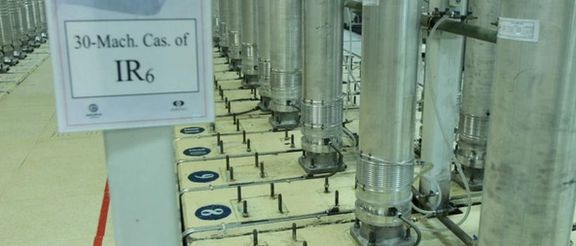
"As stated by the Agency, this unnotified change is inconsistent with Iran's obligations under its NPT-required Comprehensive Safeguards Agreement," the four countries said in their statement, referring to the Treaty on the Non-Proliferation of Nuclear Weapons.
"The IAEA inspector's interpretation was incorrect but we reported it to the agency ... We immediately provided the explanation to the IAEA on the same day," Iranian nuclear chief Mohammad Eslami said on Thursday.
Eslami in a television program Friday night tried to justify Iran’s nuclear program in general terms, claiming that the country needs nuclear power generation and nuclear medicine. Iranian officials often make misleading statement to the domestic audience, not mentioning that a high degree of uranium enrichment is not needed for civilian purposes. Nuclear reactors use less than 5-percent enriched uranium, while Iran has so far accumulated enough 60-percent uranium for one nuclear bomb.
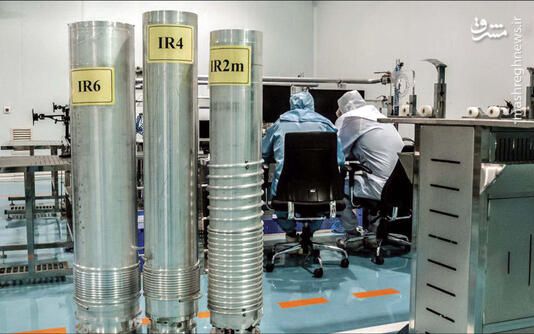
The production of high-enriched uranium by Iran at Fordow carries significant proliferation-related risks and is without any credible civilian justification, the joint statement said.
Fordow is so sensitive that the 2015 nuclear deal between Iran and major powers banned enrichment there. Since the United States pulled out of the deal in 2018 and reimposed sanctions against Iran, the Islamic Republic has breached many of the deal's restrictions on its nuclear activities.
The Western powers warned, “We call on Iran to comply with all its legally-binding international obligations under its Comprehensive Safeguards Agreement with the IAEA and to fully cooperate with the Agency in the application of effective safeguards at Fordow.”
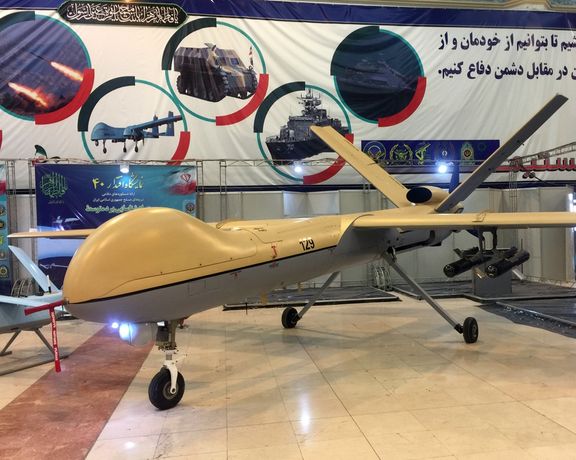
The United States on Friday imposed sanctions on the board of directors of Iranian drone maker Paravar Pars, as a measure against Iran supplying drones to Russia.
The US Treasury Department said the Iranian drones made by the company were being used by Moscow to attack Ukraine's critical infrastructure.
In a statement, the Treasury Department's Office of Foreign Assets Control (OFAC) announced it has designated eight senior executives of Paravar Pars.
"Iranian entities continue to produce UAVs (unmanned aerial vehicles) for Iran's IRGC and military. More broadly, Iran is supplying UAVs for Russia's combat operations to target critical infrastructure in Ukraine," said Brian Nelson, the US Treasury's top sanctions official.
The drone maker was previously sanctioned by the United States and the European Union for making drones for Iran's Islamic Revolutionary Guard Corps Aerospace Force.
The name of Alireza Tangsiri, the Commander of the IRGC Navy, could be seen in the list of targeted people.
The forward base ship IRIS MAKRAN (MAKRAN), an oil tanker that was repurposed for naval operations and maintains UAV launch capabilities, as well as the naval frigate IRIS DENA (DENA) are included in the list.
As a result of Friday's action, all property and interests in property of those individuals that are in the United States or in the possession or control of US persons must be blocked and reported to OFAC, the Treasury Department noted.
People that engage in transactions with the individuals designated on Friday may themselves be exposed to sanctions, the department added.
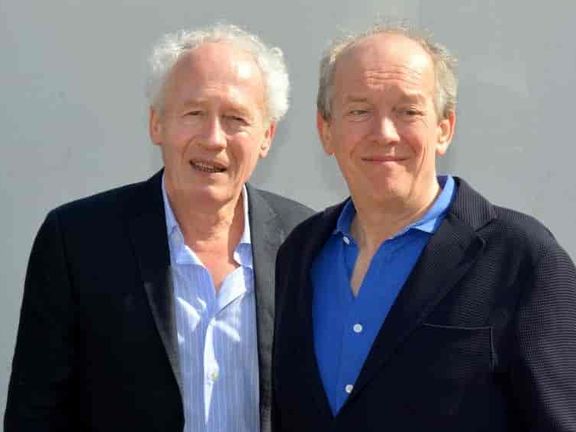
Belgian directors Jean-Pierre and Luc Dardenne have urged the Islamic Republic to remove their latest feature film "Tori and Lokita" from the poster of the Fajr International Film Festival in Tehran.
“We have just learned that our film Tori and Lokita was included in the selection of the Fajr Festival in Tehran. We demand that our film be withdrawn from the program of this festival which is the showcase of a dictatorial and murderous religious regime that we condemn. We stand in solidarity with those who are fighting against this regime and salute their courage,” said the brother in a post on Instagram.
In their statement Dardenne brothers added they were not aware of the screening of their new film at the Fajr festival in Iran, and they do not know how the Iranian regime got access to this film.
At the same time, the famous Romanian director Cristian Mungiu said he was not aware about the screening of his latest film at Fajr festival. Mungiu said he asked the film distributor to remove his film from Fajr festival immediately.
The move by prominent foreign directors comes at a time when many Iranian artists have also boycotted the festival for the brutality the regime showed in dealing with protests after the death of Mahsa Amini in police custody.
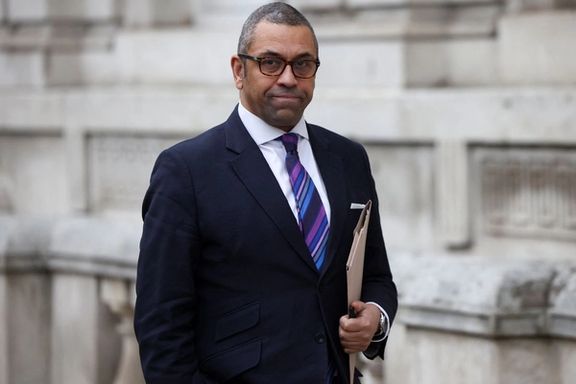
Plans for the United Kingdom to sanction’s Iran’s Revolutionary Guard have been pout on hold after the Foreign Office raised concerns, The Times reported on Thursday.
In the wake of a bloody crackdown on antigovernment protesters in Iran, Britain and the European Union began considering proscribing the Islamic Republic’s leading military, intelligence and internal security juggernaut.
The Revolutionary Guard (IRGC) has also been linked to acts of terror abroad, including threats against Iran International’s journalists working in London. The network’s headquarters in Chiswick came under Metropolitan Police protection in November when threats became serious.
The Times says that while home secretary Suella Braverman and security minister Tom Tugendhat support sanctioning the IRGC, according to sources the Foreign Office has blocked the move, “citing the need to keep communication channels open,” with Iran.
The report added that the Home Office is hopeful that “proscription will eventually progress but it is expected to be delayed by weeks if not months.”
The West’s relations with the Islamic have also soured for a lack of a nuclear agreement after almost two years of talks and Iran’s move to supply Russia with killer drones used against Ukraine.
In a separate ‘Leading Article’ The Times called for listing of the IRGC as a terror organization, saying not doing so would hardly change Tehran’s behavior and policies.
“Yet it is surely time to abandon the illusion that anything useful can be obtained though diplomatic engagement with Tehran. The theocratic regime has long since abandoned any restraint as it clings to power,” The Times said.
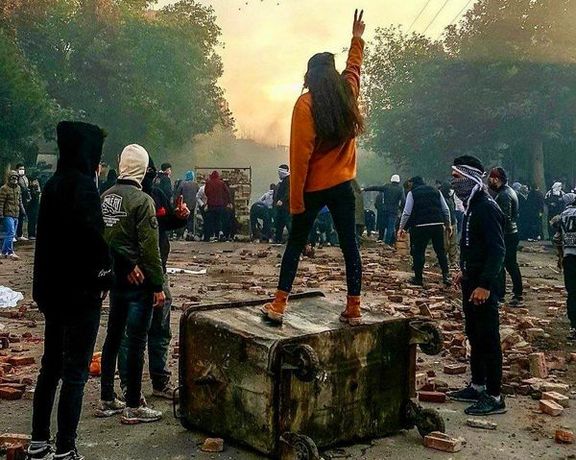
Hundreds of well-known international figures, from Nobel prize winners to movie actors, have called for support for Iranian protesters against bloody suppression.
In a petition organized by the non-profit Washington-based organization Freedom House, the signatories said that “the triumph of freedom in Iran could renew the global tide of democratization that was so strong in the latter twentieth century but has ebbed in the face of authoritarian counterattack.” “The end of the Islamic Republic’s system of misogyny would constitute a global landmark in the long march toward a world in which women are treated equally.”
The signatories include Nobel prize laureates, heads of states or government officials, members of parliaments, international organizations, as well as numerous public figures from around the world. Former UN Secretary General Ban Ki-moon; former prime ministers of Canada Stephen J. Harper, Kim Campbell and Charles Joseph Clark; and former US Secretary of State Hillary Rodham Clinton are a few of the prominent figures.
Women’s rights activists Masih Alinejad, Nazanin Boniadi, Shirin Ebadi, Azar Nafisi, Roya and Ladan Boroumand from the Boroumand Center for Human Rights in Iran, sportsman-cum- civil rights activist Ali Karimi, and Khalid Aziz from Democratic Party of Iranian Kurdistan as well as exiled prince Reza Pahlavi are some of the Iranian signatories of the petition.
They appreciated the Iranians who have taken to the streets in rebellion, noting that “the vanguard are young women, but they have been joined by men and people of all ages. With breathtaking courage and unarmed, they have kept coming, even as the regime has shot, hanged, tortured, blinded, raped, beaten, and arrested many thousands.”
Emphasizing that the Iranian people “deserve unstinting support from freedom-loving people around the world,” they called on governments, civic associations, and individuals to speak loudly and more often in support of the protestors and in condemnation of the regime’s repressive actions.
They also urged legislators to “adopt” individual arrestees, especially those facing execution, and spotlight their plight, and called on governments to “take diplomatic, economic, and symbolic measures to punish the regime and bolster the protestors.”
“All officials involved in the repression, from Supreme Leader Khamenei down to local Basij commanders, should be sanctioned," read their statement, stressing the necessity for the Revolutionary Guard (IRGC) to be added to terrorism lists.
They also asked high level officials of democratic governments to receive leaders of the opposition, in publicly-announced meetings, highlighting that accurate, reliable, fact-based reporting via international radio, television, and social media reaching Iran should be enhanced, as should assistance to private Iranian exile broadcasting.
Calling for more tangible measures, they said, “Technical assistance, including equipment, should be given to help the demonstrators counteract censorship and surveillance and to communicate despite the regime’s disruption of Internet service and blocking of websites.”
“Labor unions, governments, and others in the international community should express solidarity with Iranian workers, should share the experiences of other labor struggles for worker rights and democracy, and should also seek ways to provide practical assistance, such as VPNs, other means of communication, and contributions to strike funds if safe and effective channels can be found,” they urged.
Pledging to do all in their power to support the Iranian struggle for freedom, they called upon all people of good will everywhere to join them.
Referring to over four months of protests, they said, “The spark was mandatory hijab, but the target of the uprising is the whole theocratic system. Their slogan is Woman, Life, Freedom. The goal they chant is 'Azadi, Azadi, A-za-di,' meaning 'Freedom, Freedom, Freedom.’ Their victory would mean deliverance from a regime that denies free elections, free speech, due process of law, and personal autonomy in matters as simple as the choice of clothing.
International expressions of support for the uprising in Iran is growing as the West has stepped up pressure on the Islamic Republic over its crackdown on protests and arms supply for the Russian invasion of Ukraine as the US, European Union and United Kingdom imposed fresh sanctions on Tehran with more sanctions and condemnations being discussed regularly in the international arena. One of the main points of contention is the terrorist designating of the IRGC, which is in control of most of the governing bodies of the regime, is mainly in charge of the crackdown on dissent, and manages the Islamic Republic’s proxy warfare across the region and hostage diplomacy at home.
The crackdown has become especially tense in Kurdish and Baluch majority regions as the regime has arrested at least 182 Kurds and 185 Balochis in January alone.